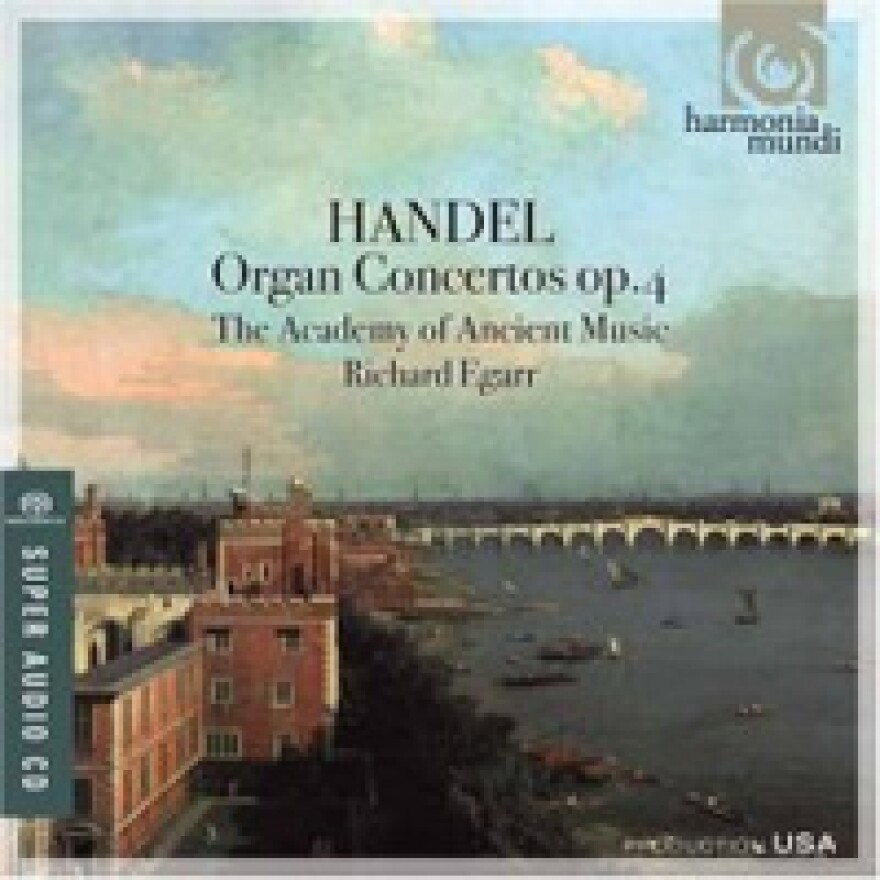There's a movement in classical music toward historically informed performances: The musicians use the same sorts of instruments, and play in the same style, as their predecessors did hundreds of years ago. But the quest for authenticity can rob the music of its passion. When I heard that England's Academy of Ancient Music had hired keyboardist and conductor Richard Egarr to lead an ensemble on George Frederic Handel's Organ Concertos, I was absolutely delighted.
The organ may be known as the "King of Instruments," but if you think of it only in terms of massive, cathedral-filling chords, you'll be surprised by this new recording, in which the organ sound is touched by intimacy and charm.
Here, Egarr conducts the Academy of Ancient Music while playing the organ. But he's also a versatile artist on all kinds of keyboards: historic organs, harpsichord, fortepiano, and modern piano. He plays music from many eras, and has a remarkable gift for combining subtle musical gestures with forward–moving, irrepressible rhythms.
While I've admired Egarr's recordings for some time, he's even better in person. His recent performance with the Portland Baroque Orchestra was one of the most exciting musical evenings I've had in years. The way he communicates with audiences reminds me of Leonard Bernstein's ability to engage listeners without talking down to them. He also matches Bernstein's onstage charisma, so it wouldn't be a stretch to call Egarr "the Bernstein of Early Music."
I've been waiting for a conductor like Egarr to come along for some time — a conductor who pursues historical authenticity but allows himself an emotional involvement often avoided by many other early-music specialists. While he has wonderful technique, he's much more than a virtuoso of finger work; Egarr is a virtuoso of nuance, of dancing rhythms and sparking melodies. He's one of the most exciting and delightful musicians of our time.
Copyright 2022 NPR. To see more, visit https://www.npr.org.



